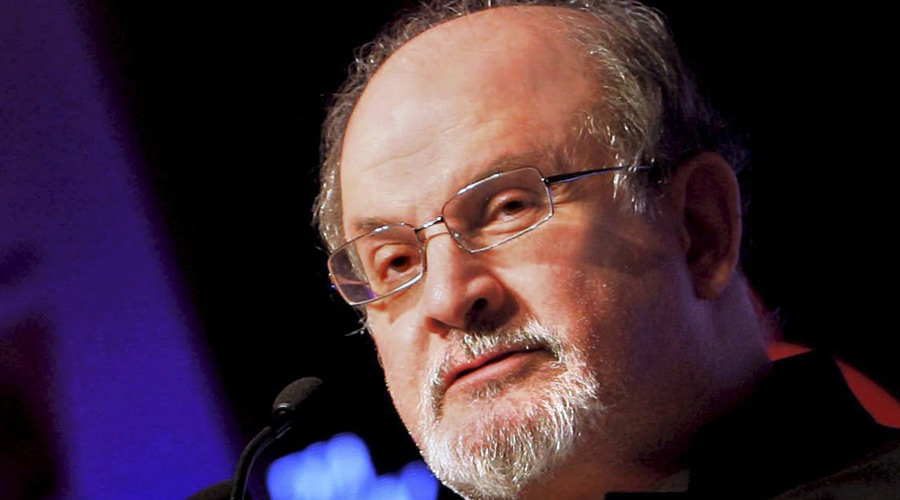Though Salman Rushdie was forced to go into hiding for several years in the 1990s, he has been living freely in New York in recent years, his friends say, appearing in public without evident security, even as his status as a high-profile author and champion of free speech has made him a celebrity.
In an interview last year, Rushdie, 75, was casual and easy-going as he spoke about literature from his Manhattan home, adopting the air of someone who had long ago re-entered society and revelled in being a man about town.
Asked about the longstanding call for his death he answered simply, “Oh, I have to live my life.”
That was a dramatic change from 1988 when his novel The Satanic Verses was published.
Some Muslims considered it blasphemous because it fictionalised part of the life of the Prophet Mohammad, and the following year Ayatollah Ruhollah Khomeini, the supreme leader of Iran, issued a fatwa ordering Muslims to kill Rushdie.
Rushdie lived in London for some 10 years after the fatwa was issued. In the first few months, his wife at the time, the novelist Marianne Wiggins, said the couple had moved 56 times, once every three days.
The couple soon separated, under strain from the tense life they lived.
Six years after the fatwa was issued, Rushdie began to appear in public again.
In September 1995, he attended his first publicly scheduled appearance, at a London panel discussion called “Writers and the State.” “The term ‘coming out’ has gone through some unusual metamorphoses,” Rushdie said.
“Thank you for attending this little coming-out party.” At the time, Rushdie was never without heavily armed bodyguards. Still, as Sarah Lyall of the Times reported, “He travels, eats in restaurants, appears at bookstores and is a regular fixture at London’s literary parties.”
New York Times News Service











